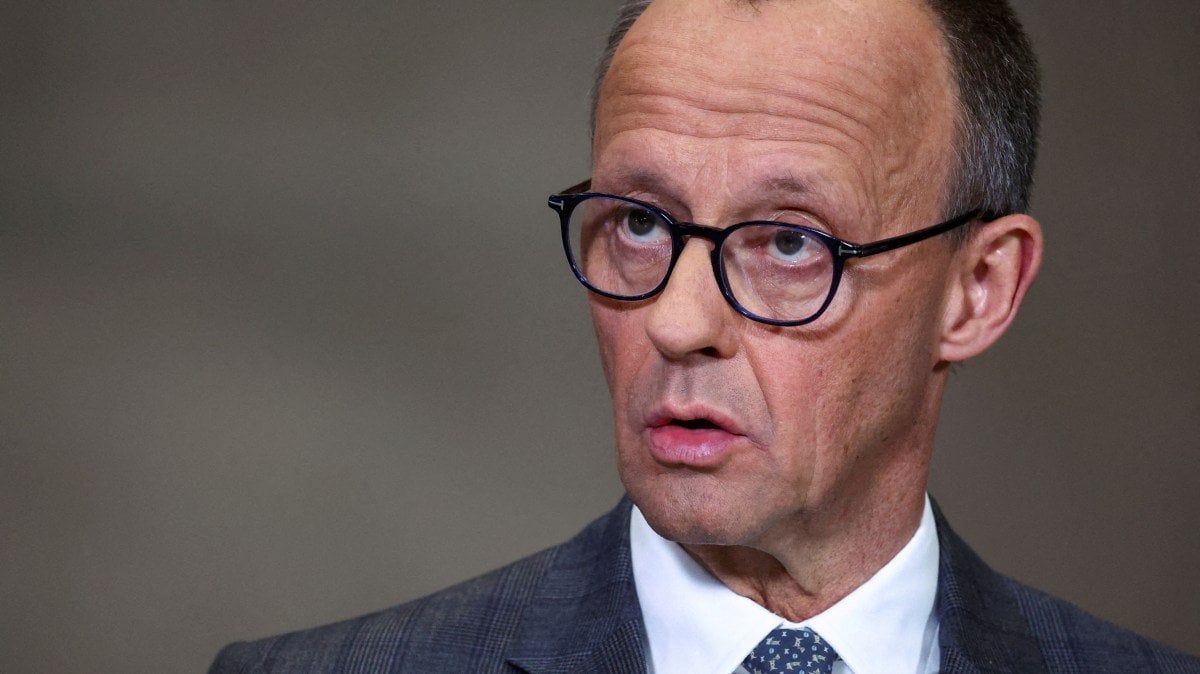
‘Unlimited’ military spending, a mountain of debt and a shaky coalition — how Germany’s gamble could reshape Europe
https://www.thetimes.com/world/europe/article/germany-merz-debt-reform-qxgrp8z5p?utm_medium=Social&utm_source=Reddit#Echobox=1741363973
Posted by TimesandSundayTimes
7 comments
This week, electrified by horror at the level of hostility from the Trump administration, he struck a deal to pursue one of his country’s most momentous reforms since it was reunified in 1990.
It includes a €500 billion slug of debt for infrastructure investment, roughly equivalent to Norway’s entire annual economic output.
Yet even that splurge could be dwarfed by a proposal to exempt military spending from the country’s constitutional lock on public borrowing. It is, in theory, a licence for an unlimited defence budget, constrained only by coalition politics and the whims of the bond markets.
Announcing the package on Tuesday evening, Merz briefly switched from German to English in an effort to convey the scale of its ambition: “Whatever it takes.”
What is the alternative? You have Russia, China, and now the US acting against EU interests. Europe will take a big hit from this new world order belligerent countries are shaping. Gone are days of suave charm offensives led by EU diplomats. We are back to explicit Bismarckean realpolitik– more stick, less carrot.
Military spending hike is in my opinion an overkill. Russis could be deterred by expanding the nuclear umbrella provided by France and the UK. NATO without the US can defeat Russis by conventional means.
What actually could be a real danger is if the Us decides to act like Russia. But in my opinion the Trump era would always be an anamoly. Once the American public experiences some real hardship, they would come into their senses. This has happened in many parts of the world. Again here, we need more economic resilience.
The money is better spent improving failing infrastructure in Germany.
Germany allocating funding only addresses a small part of the issue. Germany really needs to address its litigious procurement system. BAAINBw is fundamentally broken. Streamlining that office alone would address significant procurement issues and, with the stabilization of purchasing power and the ability to reliably commit to contracts, would probably address some of the inflated contract prices Germany sees. It’s not a silver bullet, to be sure, but it would probably help more than allocating a few billion more per year.
[removed]
I am flabbergasted as to why Europe is in such a tizzy over this. Sure, being under the American umbrella made their security virtually guaranteed, but isn’t the EU a competent enough force on its own? Considering that their primary security challenge is Russia, which has struggled against a much more feeble opposition, shouldn’t Europe be able to more than hold its own- France and the UK still provide the deterrent of nuclear weapons, the Continent has a respectable and cutting edge MIC (though it is somewhat curtailed by its production capacity and procurement challenges). It is an economic behemoth (unlike Europe). As far as I understand it, the real challenges Europe faces are their reliance on Russia for energy and other resources, and covert activities as a means to sow disinformation and chaos in civil society from foreign state actors, rather than an outright military confrontation. Wouldn’t addressing these be far more pertinent?
The way the media is portraying this entire fiasco is as if the Last Trumpet (no pun intended) has been sounded, and the death knell tolls.
Or am I inadequate in my understanding? Would be interested in hearing others’ thoughts on this.
Well, Germany in an economic collapse where the AfD takes over a large military – this would definitely reshape Europe.
Germany without cheap Russian gas is a poor Germany and the populace still does not understand the magnitude of quality of life adjustment ahead.
History shows what may happen.
Comments are closed.